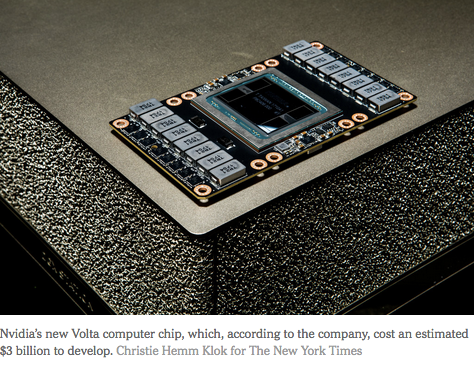SANTA CLARA, Calif. — Engineers at CTA.ai, an imaging-technology start-up in Poland, are trying to popularize a more comfortable alternative to the colonoscopy. To do so, they are using computer chips that are best known to video game fans.
The chips are made by the Silicon Valley company Nvidia. Its technology can help sift speedily through images taken by pill-size sensors that patients swallow, allowing doctors to detect intestinal disorders 70 percent faster than if they pored over videos. As a result, procedures cost less and diagnoses are more accurate, said Mateusz Marmolowski, CTA’s chief executive.
Health care applications like the one CTA is pioneering are among Nvidia’s many new targets. The company’s chips — known as graphics processing units, or GPUs — are finding homes in drones, robots, self-driving cars, servers, supercomputers and virtual-reality gear. A key reason for their spread is how rapidly the chips can handle complex artificial-intelligence tasks like image, facial and speech recognition.




